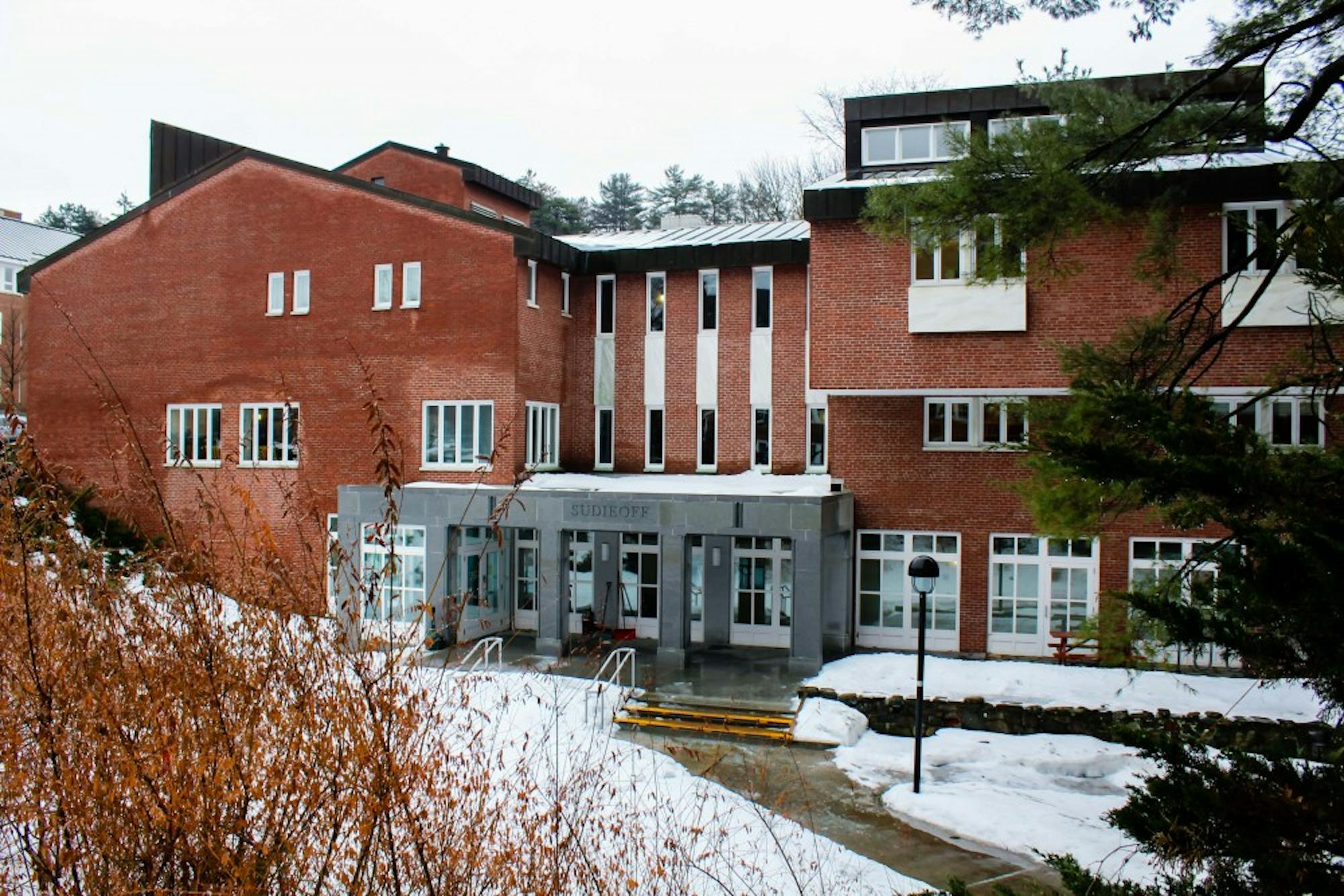The perks of living in the Digital Age are plenty. Computing technology has revolutionized communication, entertainment and work. The overwhelming demand for this technology has led to a similar demand for the knowledge of those behind the scenes in the industry.
Dartmouth’s computer science department has certainly felt that demand. Enrollment in computer science courses has soared in recent years. Computer Science 1, “Introduction to Programming and Computation,” has become the College’s most highly-enrolled courses.
Computer science professor Lorie Loeb, who is also the executive director and co-founder of Dartmouth’s Digital Arts, Leadership and Innovation Lab, has a unique perspective on the growth of the department.
“I came here in 2002 when … some of the dot-com stuff was kind of going through a recession,” Loeb said. “And things were tough. Since then, the dot-com industry has been sort of a leader in coming back and people have understood just how important computers are in every field. So students are taking more and more computer science courses even if they don’t major or minor in computer science.”
Even students with no prior intention to major or minor in computer science are enticed to do so by the department’s courses. Cara Van Uden ’19, who is a double major in computer science and cognitive science, discovered her appreciation for the subject after taking Computer Science 1.
“I had never done computer science before and I took Computer Science 1 in my freshman fall,” Van Uden said. “I came in as a bioengineering major. I took [the class] on a whim … I just really liked it, it just feels very creative, but still nicely structured. It feels like learning a new language.”
Neerja Thakkar ’19, another computer science major, had a similar experience when introduced to the computer science department through Computer Science 1.
“I just fell in love with the discipline,” Thakkar said. “It was a really well-structured class, and even though I had no experience before, I felt like I was able to get ahold of the concepts and get the help that I needed.”
The constant innovation in computing technology may be one factor that lures students into computer science courses. The department utilizes new and evolving technologies in order to prepare students for the modern age.
“I’m taking a class, [Computer Science 89.11, “Cognitive Computing with Watson”] that uses IBM’s Watson ... so that’s obviously very cutting-edge,” Thakkar said. “I think Dartmouth has been developing new courses and a lot of professors will take recent things that are happening and use them for courses, so Dartmouth has done a good job of keeping up with the times.”
Despite the changes being made to keep pace with an ever-changing world, the department still prioritizes the underlying principles of computer science that have existed for decades.
“We try to create courses that fit with the changing landscape of what’s happening in computer science and also hold true to the fundamentals of what computer science is,” Loeb said. “The curriculum’s always trying to change and reflect the current environment, but the core of what computer science is and the concepts that are behind it haven’t changed.”
The department also understands the drawbacks of having large class sizes. In order to accommodate the growing number of students who become hooked by comptuter science, the department has made some necessary changes.
“We’re growing!” Loeb said. “We’re adding more faculty and we’re offering more sections of our most popular courses in order to keep the numbers realistic.”
Students have also noticed an increase in the number of teaching assistants hired by the department, which some believe may minimize the disadvantages of having a high student-to-professor ratio.
“I’ve a had a few professors ask me to T.A. and say that they want more T.A.’s so that they can let more people into the course,” Thakkar said. “I think that the way a lot of CS courses are structured, your T.A. can be really, really helpful in addition to the professor.”
Despite the high enrollment in many courses within the department, there is still a feeling among students that the department provides sufficient support for their academic goals.
“I think a lot of people say that it’s the hardest major, and I definitely think the courses I’ve taken are challenging and a lot of work, but I also feel like there is a lot of support in place for students,” Thakkar said. “I think there are a lot of ways to succeed in a computer science class. Professors, for the most part, do a good job of trying to make students know about resources and know that you can come to office hours.”
Van Uden agrees that, despite misconceptions from other students, learning computer science is not an insurmountable challenge for anyone.
“I had never coded before and I had actually been told a couple of times that I should stay away from computer science because they think ‘Oh, you want to be a doctor, right? Computer science is for people who have been coding for a long time,’” Van Uden said. “It’s just a lot of having confidence in yourself and realizing that a lot of computer science is problem-solving on the fly.”
Responding to growing student demand is not the only way in which the department has modernized itself. Like in many of Dartmouth’s other STEM departments, computer science faculty and students have begun to emphasize the importance of gender diversity.
In July 2017, education startup StudySoup ranked Dartmouth as the nation’s second-best computer science program for women. The Women in Computer Science program, of which both Thakkar and Van Uden are members, provides women with mentorship and support for their goals in computer science.
In a field that has changed in many ways, Dartmouth’s department of computer science has done its best to keep up with the times and guide its students. The department may be molding the future just as much as the future will mold the department.




